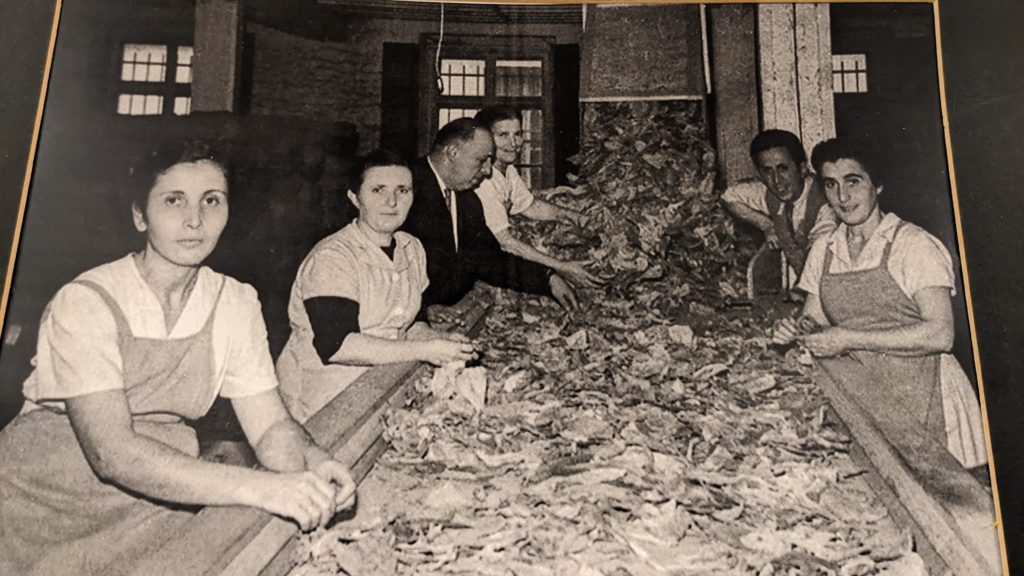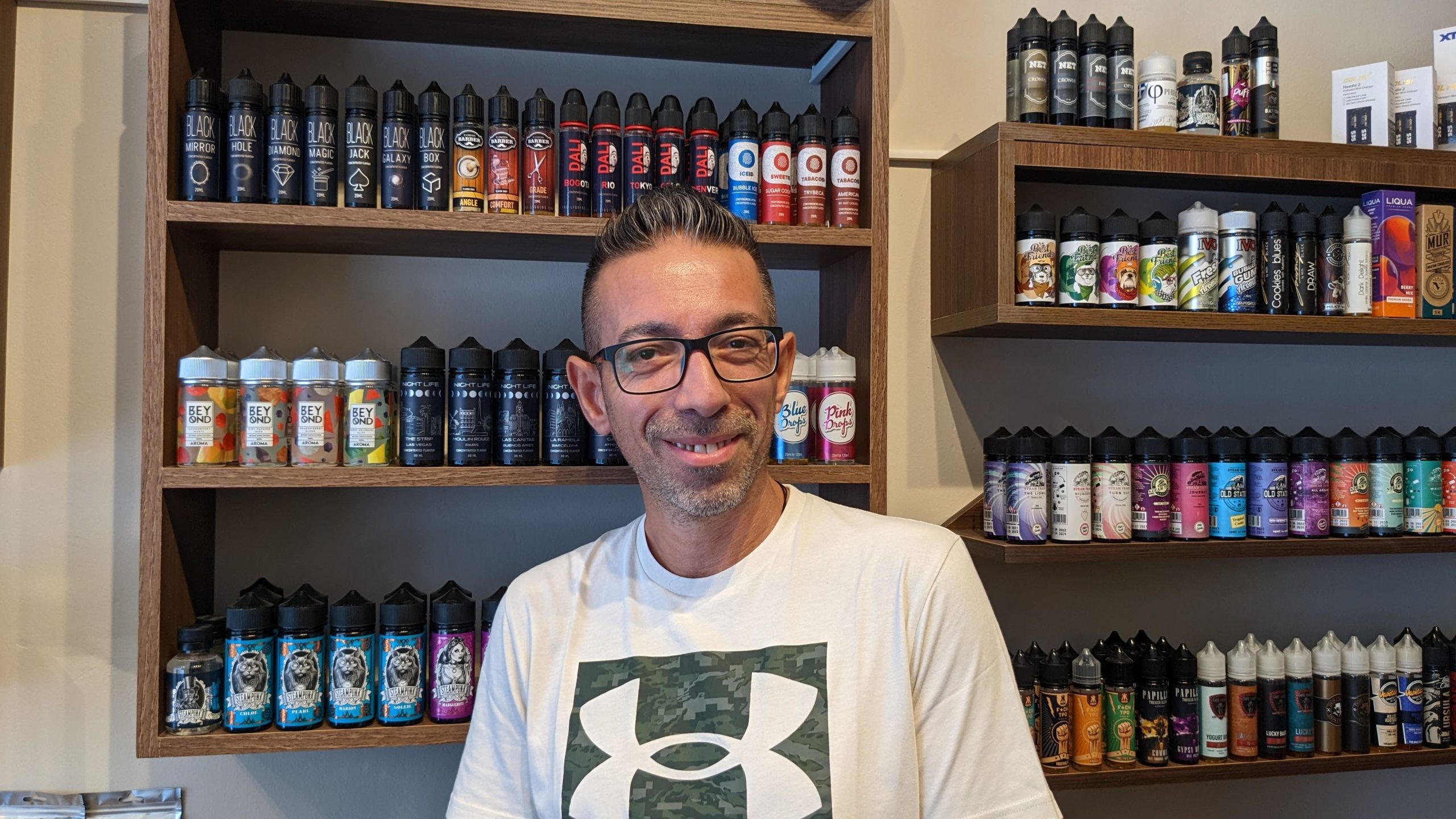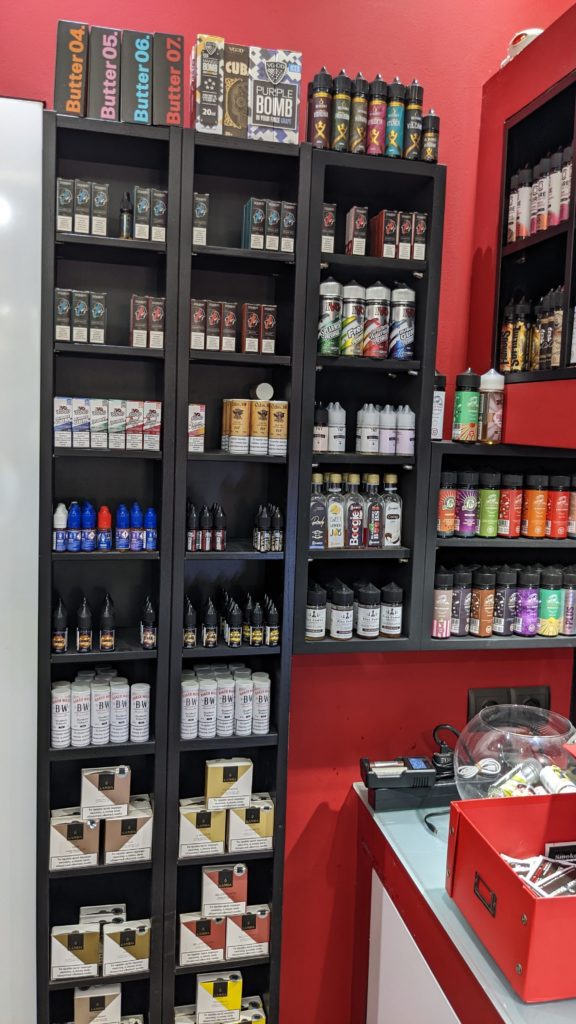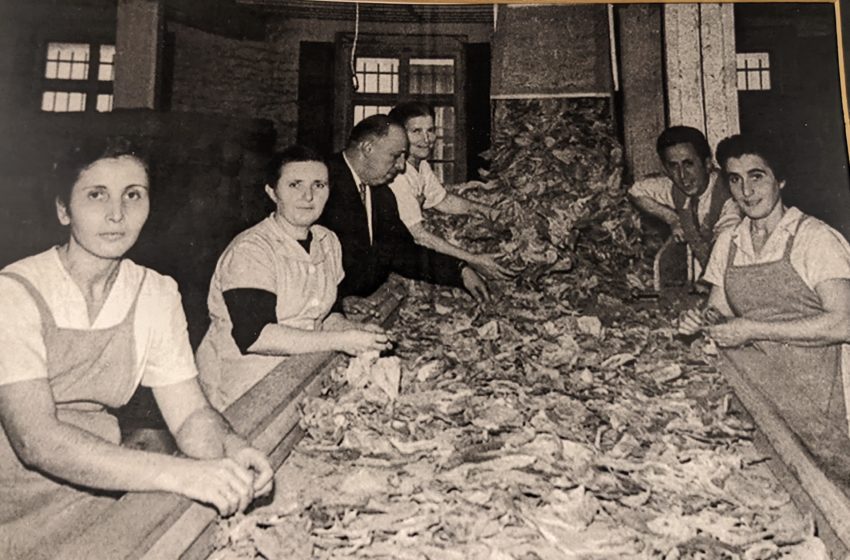
An ancient tobacco powerhouse, Greece is now also home to a lively vaping business.
By Norm Bour
If someone asked you “Which country used to process the most tobacco a century ago?” your first answer would probably be the U.S.—and you’d be right. But what would your second choice be? I was shocked to find out it was Greece.
I was invited to travel through the northern part of Greece for a month, so I dug into the vape space there to see how it was doing compared to other countries, and I was surprised to find the Tobacco Museum of Municipality of Kavala, the first city we stayed in. It’s a rather long name, and I was taken aback since I had no idea that Greece, and specifically the city of Kavala, were important players in the tobacco world.
A week later, I stayed at a high-end resort in the city of Drama, further to the north, and discovered that this amazing hotel, which was totally renovated 10 years ago, started life in 1911 as a tobacco processing plant, employing a significant number of residents.
The tobacco that was grown in Greece, known as “basma,” was considered to be among the finest in the world, and the Greeks started cultivation about 200 years ago. By the late 1800s, Kavala had over 150 tobacco shops, and tobacco was big business through the 19th century until about 100 years ago.
The processing of tobacco leaves and the manufacturing of cigarettes played a key role in the country’s history and contributed to the prosperity of both Kavala and Drama along with the major city of Thessaloniki. It also played a huge part in improving workers’ rights in other industries and employed several female workers.
A century ago, Greece and Turkey were in turmoil in the aftermath of World War I and the Greco-Turkish War in 1922. There were massive relocations between the two countries, which caused huge unemployment.
Tobacco helped create a more stable workplace and economy and contributed to Greece’s increasing power in trade.
Tobacco in Europe took a different path than it did in America. Its history goes back to 1560 when the French ambassador to Portugal first introduced it to Catherine de Medici as a cure for migraines.
Usage spread to the masses, and about 2,000 smoking pipes dating back to the 17th century were found near Thessaloniki, Greece, during excavations. The growing Ottoman Empire got much of its tobacco from Greece, which at the time was under its rule.
Pipes back then were not just smoking utensils but also works of art. They became status symbols that indicated their owner’s position in society.
Smoking remains prevalent in Greece today. Even though incidence has declined, it is still quite popular among the young and old alike. Some 38.2 percent of Greeks aged 15 and up smoke, according to the Global Adult Tobacco Survey. The majority (51.2 percent) is male and about half that share is female.

In Thessaloniki, I spoke with Marios Zarnvidis from the Smoker Steam vape shop, which opened in 2013. “In 2013 when we opened, having a vape device showed you were cool. The young kids were more focused on that than the health benefits,” he said. “We had four golden years from then until 2017.”
Then, Philip Morris International’s Papastratos subsidiary, one of the largest tobacco manufacturers in Greece, spent €300 million ($287.83 million) to convert one of its largest plants to exclusively manufacture its IQOS heat-not-burn product.
That severely impacted Smoker Steam and other shops as people tried these new devices. Over the years, smokers gravitated to their devices of choice. Smoker Steam’s business is now more consistent, but its heydays are gone.
“Today, about 20 percent of the younger people I know smoke, and their friends who do not [smoke] try to discourage them,” says Zarnvidis. “Our parents’ generation didn’t know of the dangers, but today’s kids do, and they try to support their smoking friends. My father started smoking at age six and finally quit in his mid-30s, and I only smoked for a few years in high school when many of us did—but now I’m 36 and would rather vape.”
Cigarette and nicotine taxes impact vapor products as well, but e-cigarettes still cost about one-third the price of conventional cigarettes.
Disposables are new to Greece, and much of the demand came from tourists who had become accustomed to them in their home countries.
Zarnvidis sells a lot of 10 mL bottles, which surprised me. He explained that they have a high number of attorneys and other professionals who try to be discrete, so they prefer smaller products overall. Those bottles sell for €5 to €6 each.
Smoker Stream’s top sellers include Alter Ego, a Greek company, and fruit-flavored liquids are still his biggest draw followed by tobacco-flavored liquids. Dinner Lady was a big seller along with Five Pawns, both of which have a significant U.S. presence, but most of his products are made in Greece.
The vape industry remains under a cloud of paranoia as every year the government threatens to outlaw vape, prompting vapers to hoard products.
“I hate it when that happens since everyone comes in and stocks up, and then we don’t see them again for a long time,” says Zarnvidis. “I’d much rather see consistent cash flow.”
Despite the challenges, Greek businessmen are still opening vape shops, often driven by passion.
Lambros Vlahopoulos opened Serial Vapers three years ago in Ioannina, a town of about 65,000 people. He considers himself to be a hobbyist because he believes in the benefits of vape over smoking. Vlahopoulos says he opened his shop to “spread the word” rather than to make money.
“This shop is the story of my life and includes many collectibles from my youth,” he says. “Everything inside, all the woodwork, I did myself. I was a heavy smoker since I was 13, and when I discovered vape, I knew this shop, which took eight years to open, was going to be a reflection of my journey.”
Unlike many of his counterparts in the U.S., Vlahopoulos does not sell disposables. He remains old school, blowing big clouds during our talk. As much as he is not money driven, he insists on carrying only refillable devices and liquids.
“You can buy disposables anywhere, at any gas station or convenience store,” he says. “You never know what’s inside. I want to know my customers, teach and train them so they can respect the process of quitting smoking.”
Norm Bour is the founder of VapeMentors and works with vape businesses worldwide. He can be reached at norm@VapeMentors.com.


